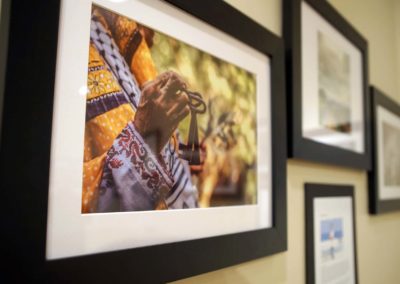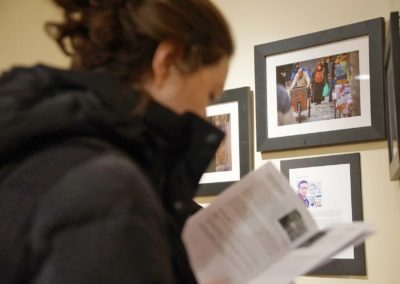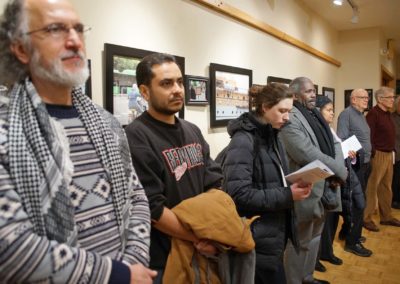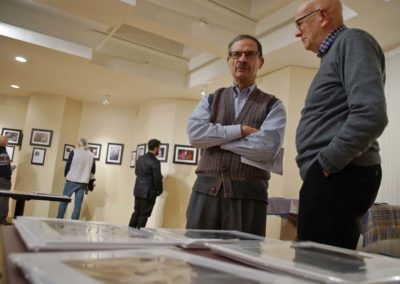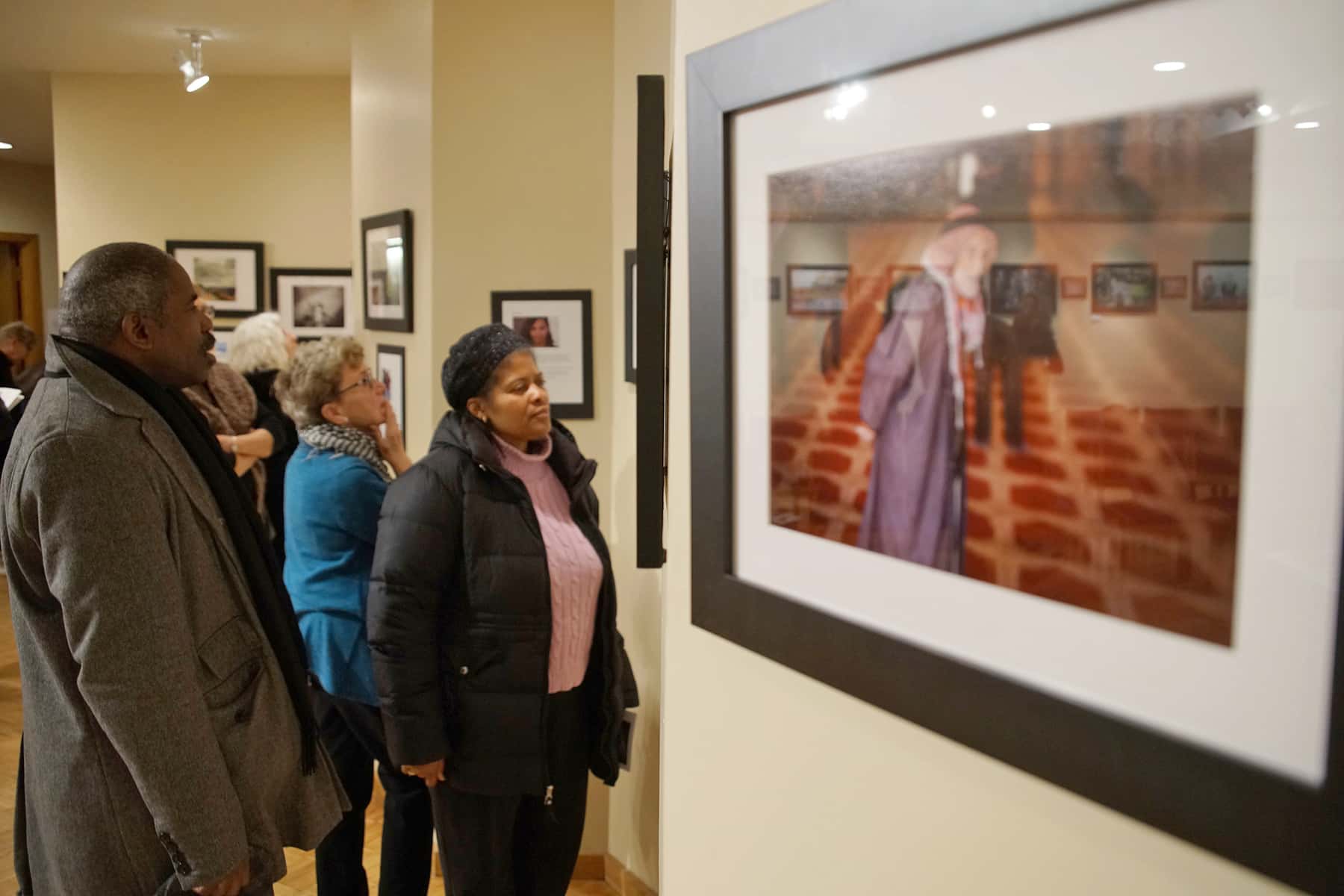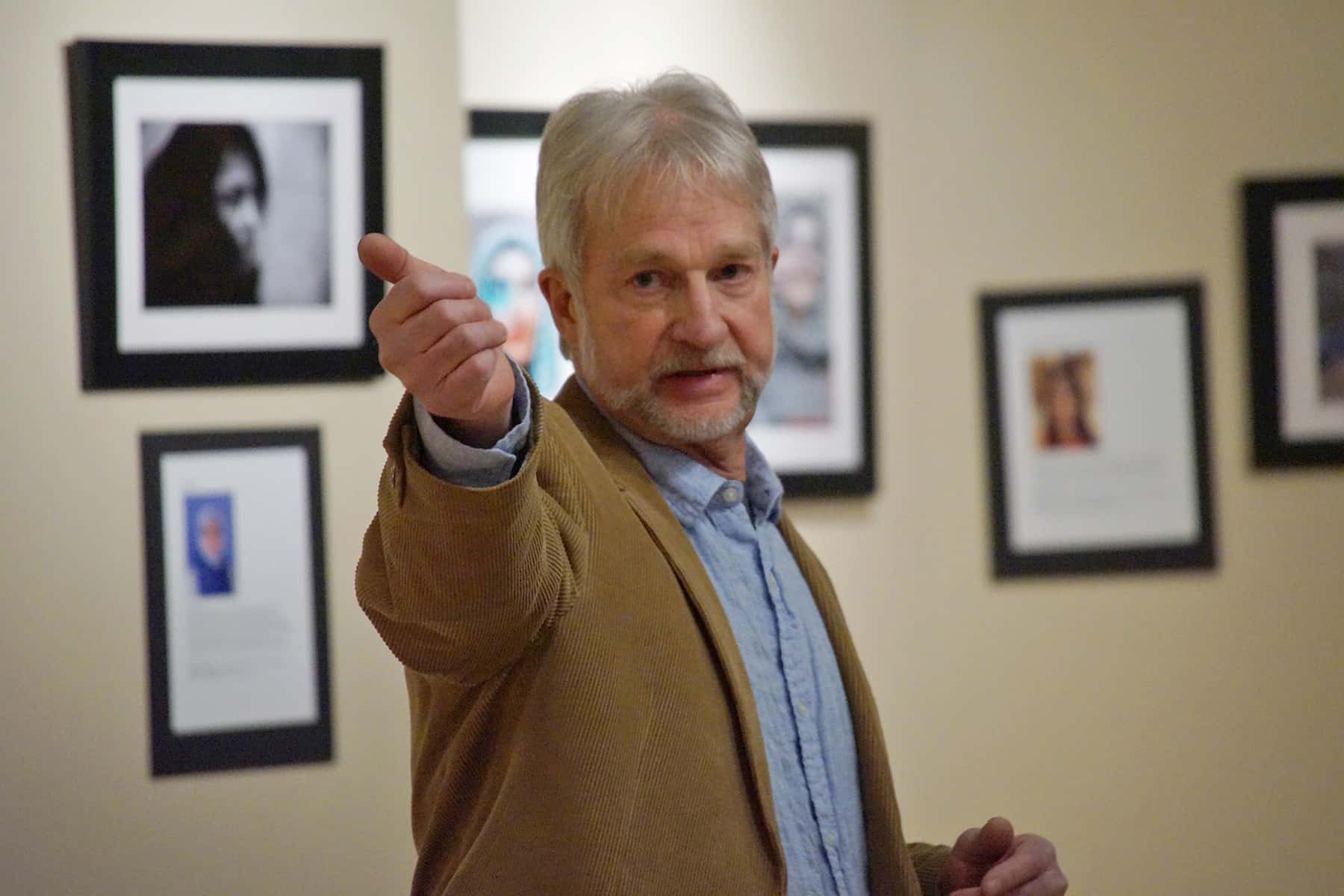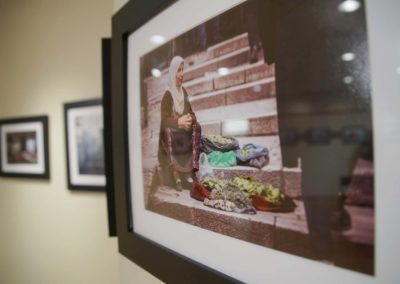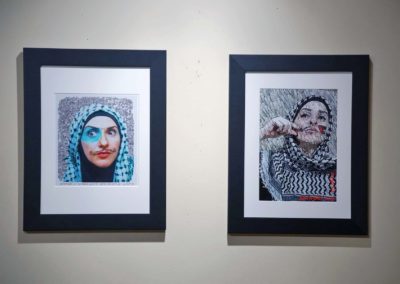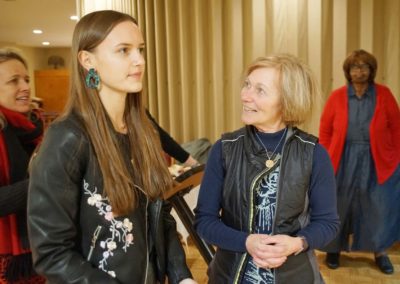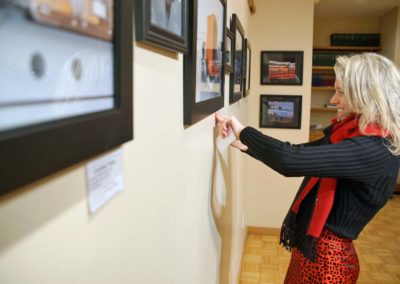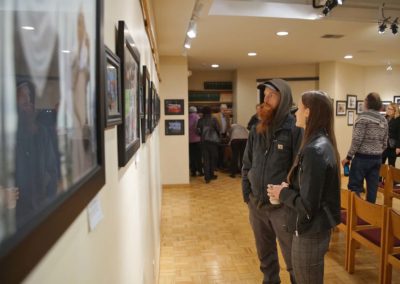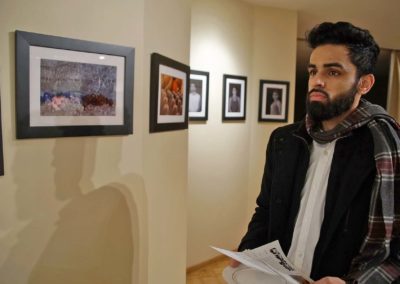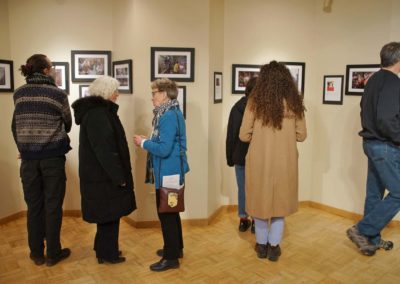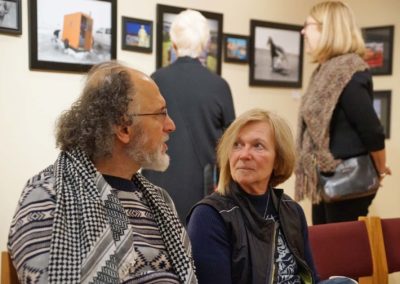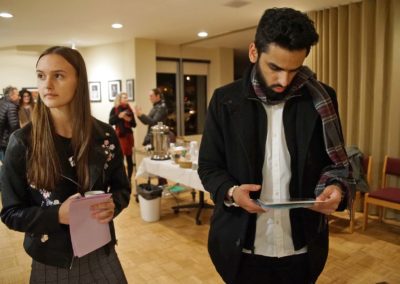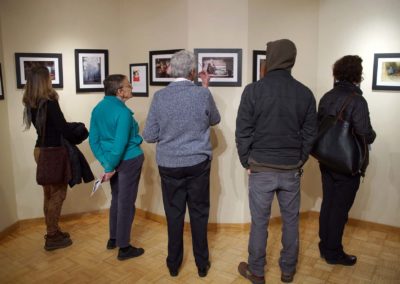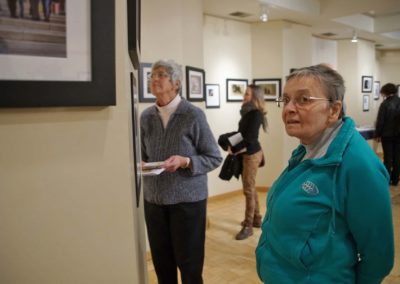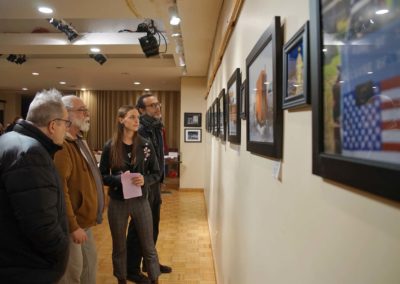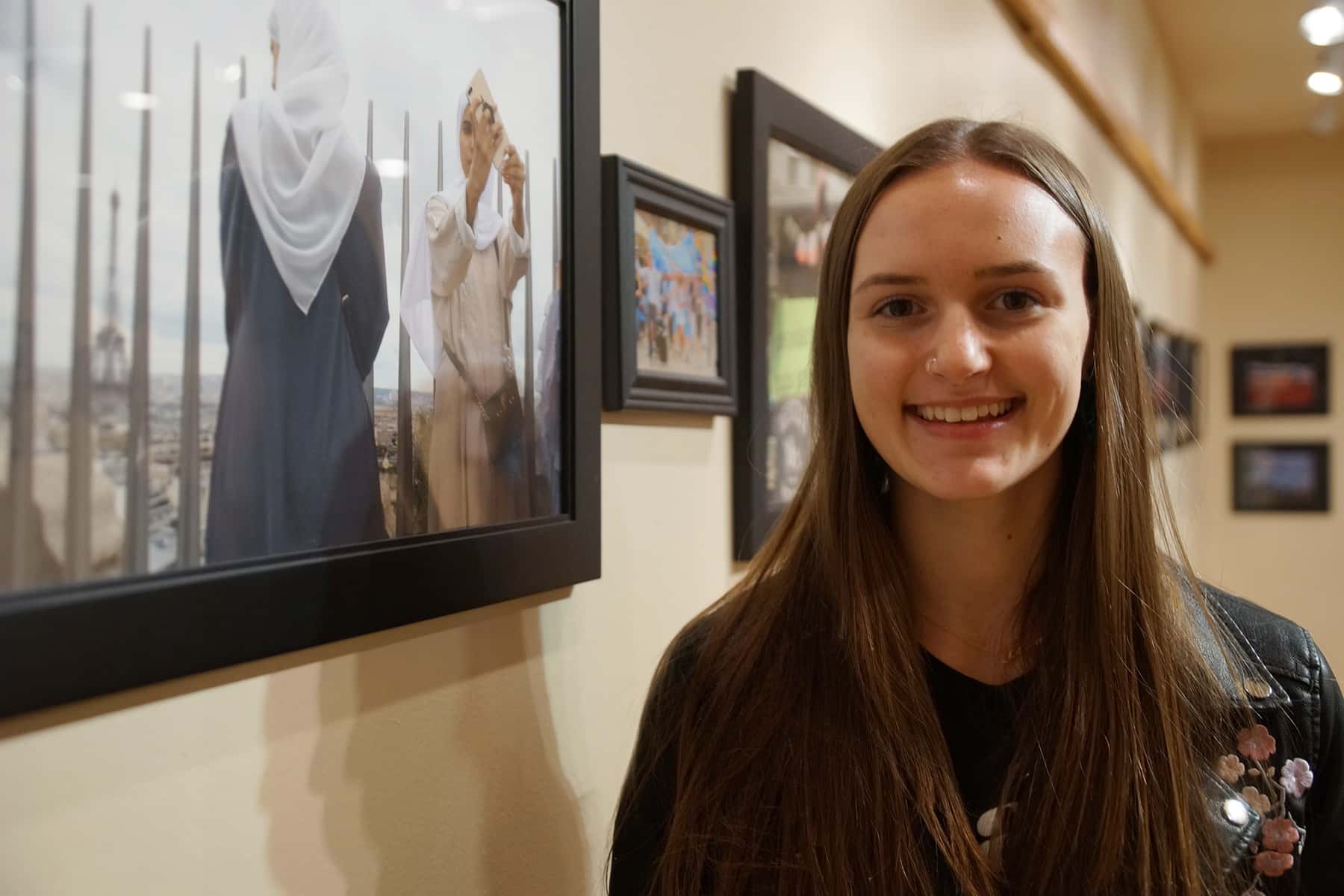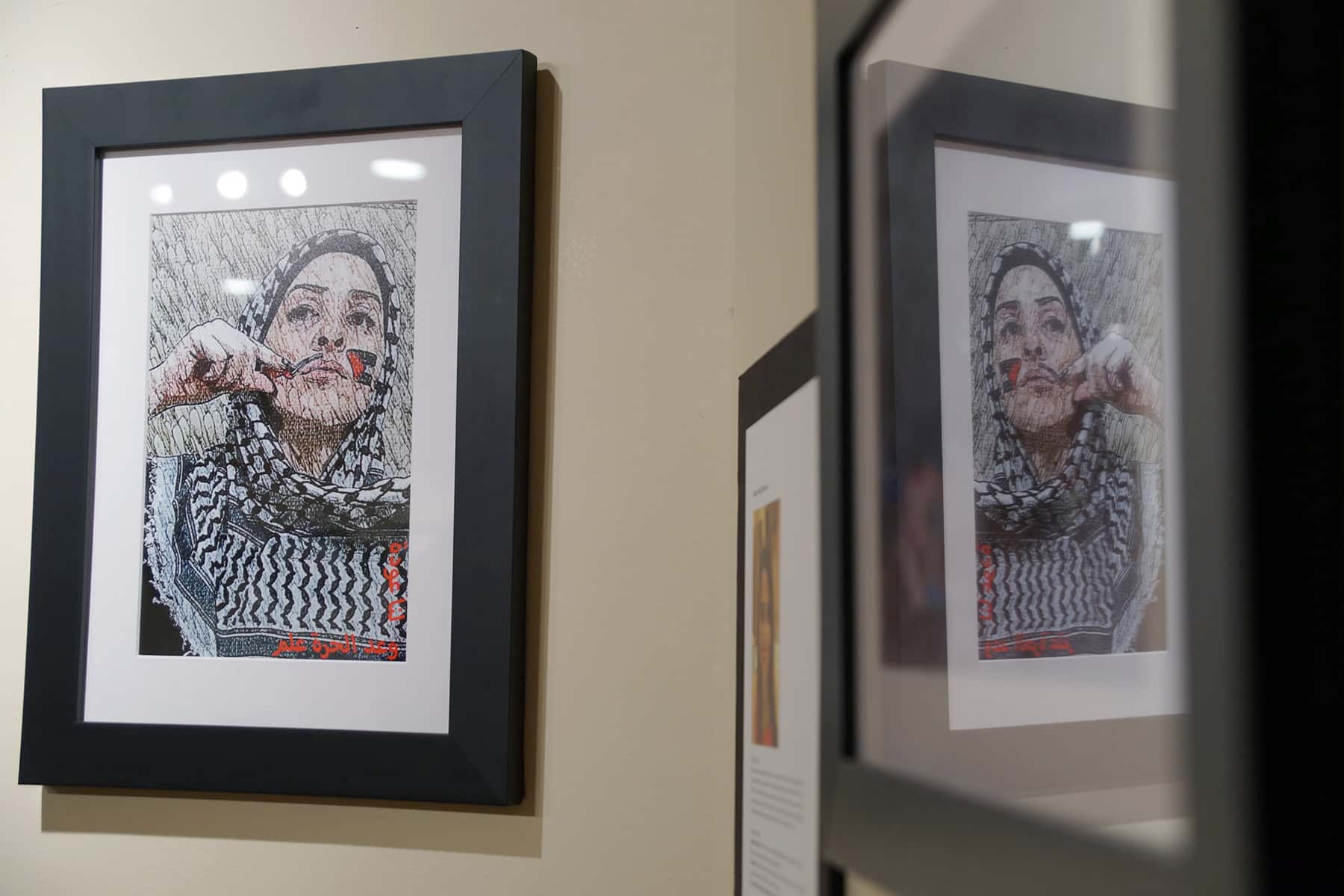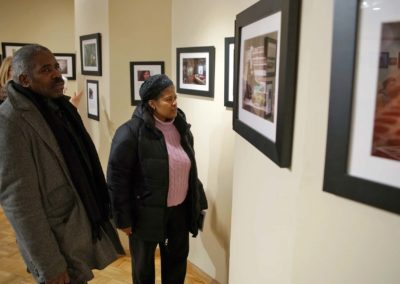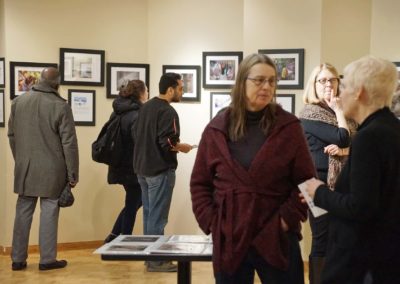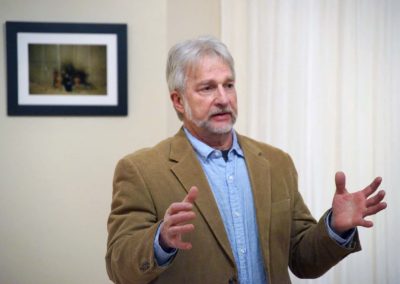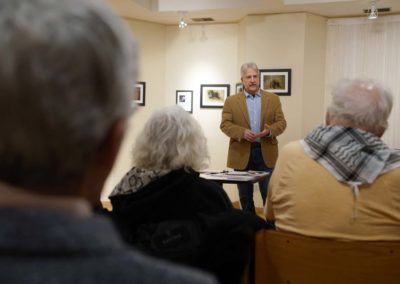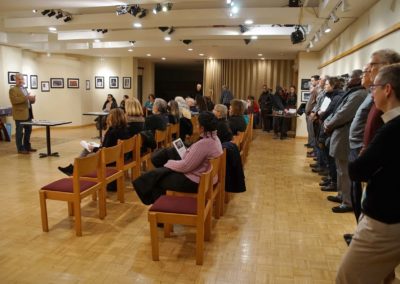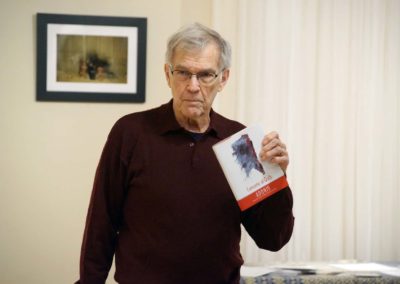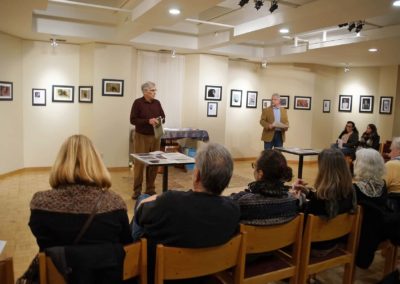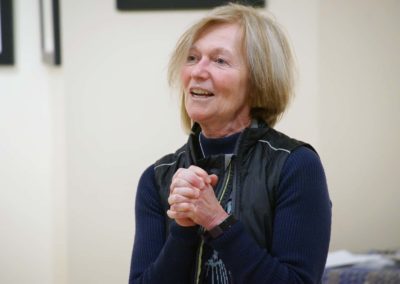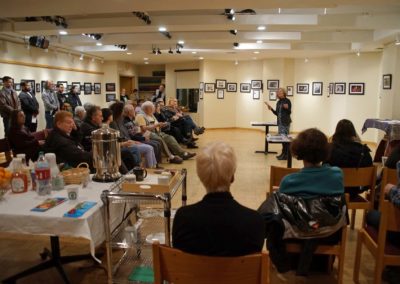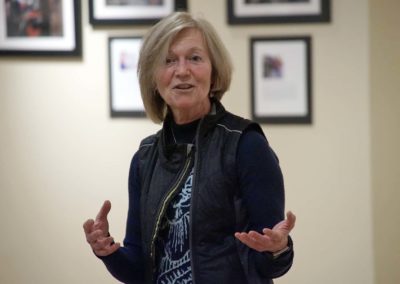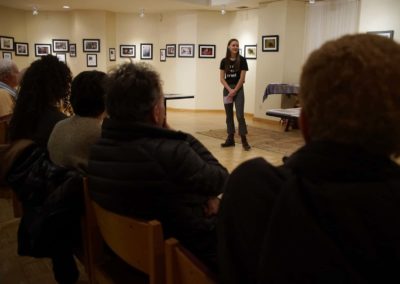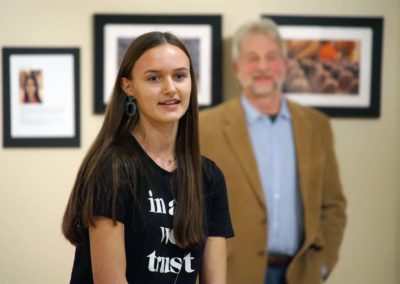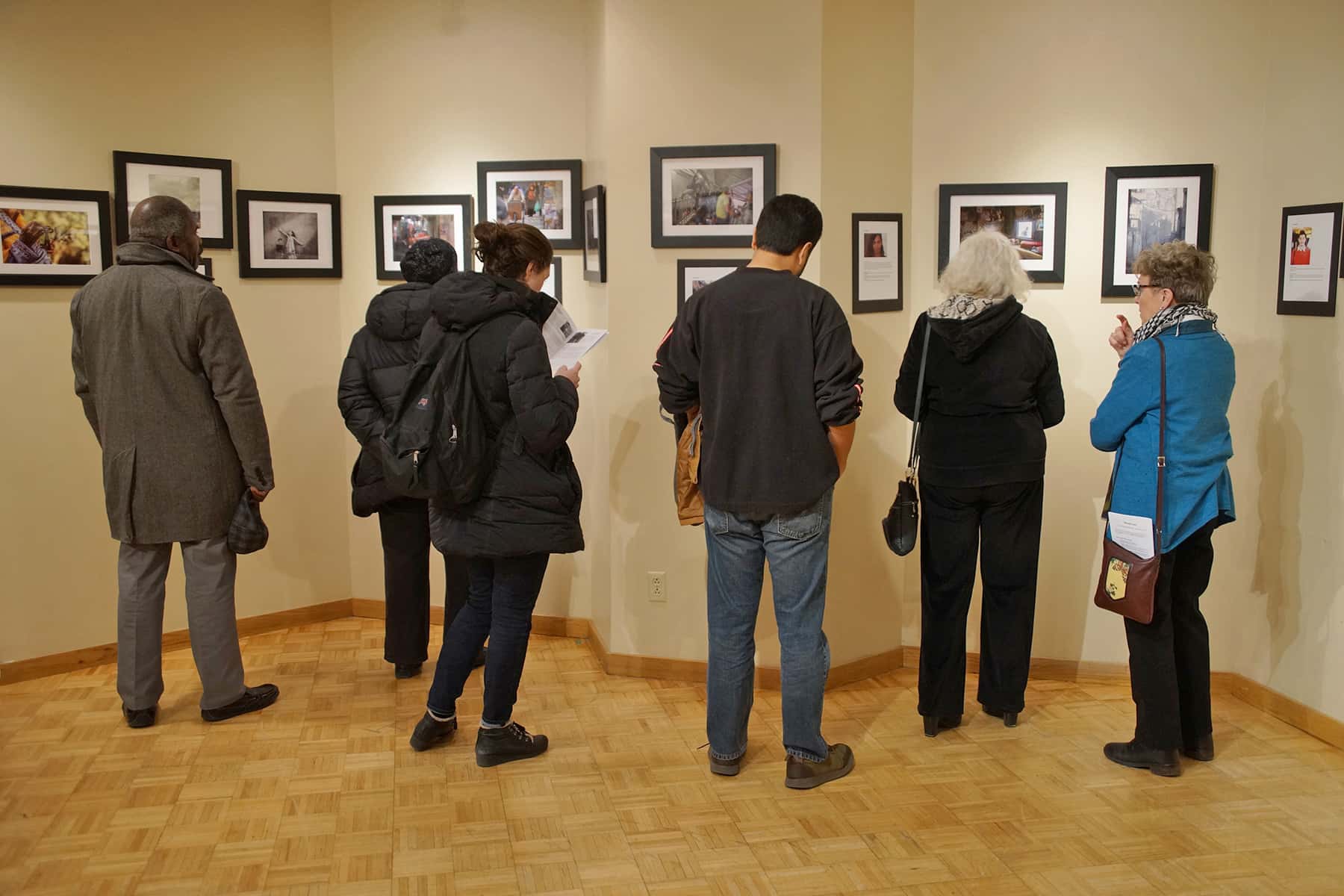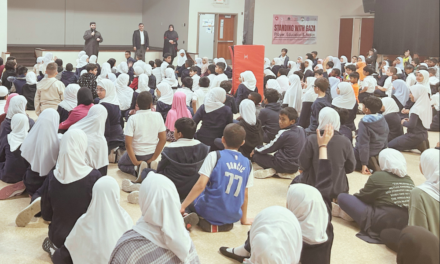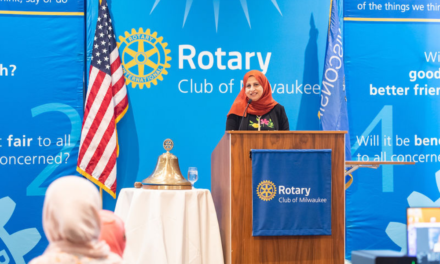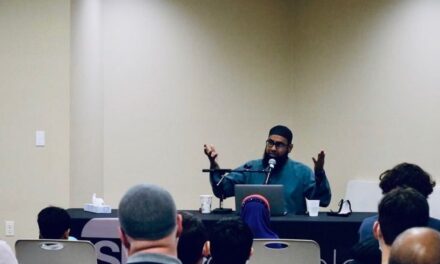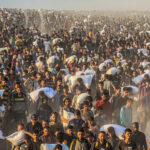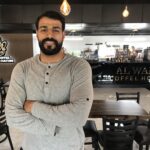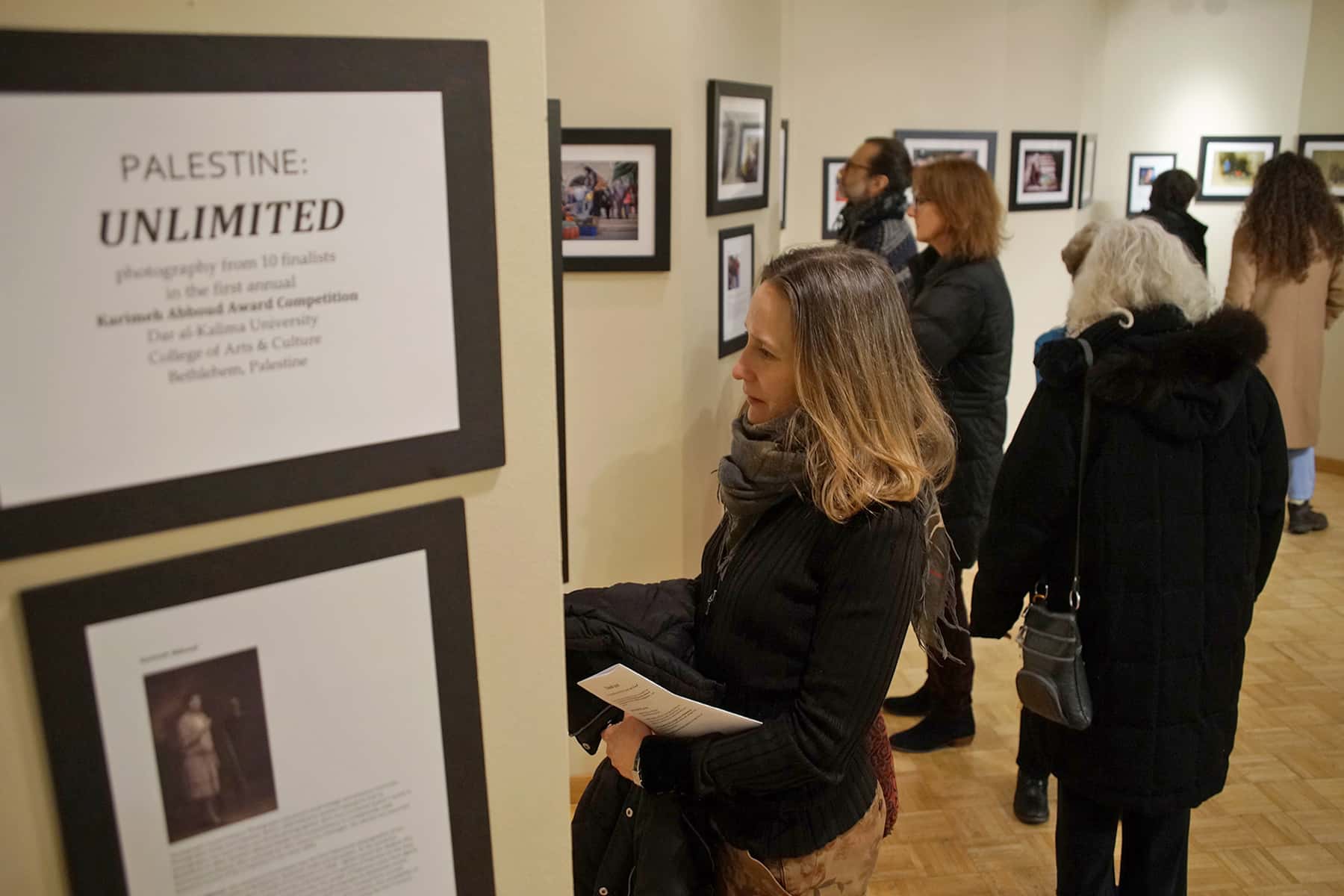
“Palestine: Unlimited” transformed the walls of Village Church on January 15, with a unique photography exhibit by young Palestinian artists and media students from Dar al-Kalima University College of Arts and Culture in Bethlehem.
Palestine: Unlimited presented the winners from Dar al-Kalima’s first photographic competition, in honor of the first female Palestinian photographer, Karimah Abboud. Images from the ten finalists were selected to help break stereotypes and share a realistic view for the public to experience Palestine’s true nature.
The opening night event included speeches from local clergy and remarks from Beth Nelson Chase, Executive Director of BrightStars of Bethlehem. A young Milwaukee artist, Brienz Ottman, also shared her travel photography, and Rev. Alexander Jacobs read some original and Palestinian poetry.
Surrounded by Israel’s Separation Wall since 2002, the traveling exhibit displayed moving and thought-provoking images of life in today’s Bethlehem. The collection of pictures also showcased the realities experienced by the Palestinian people. This year, Palestine has endured its 50th year of military occupation, the longest occupation in modern history.
The creativity and skills from students, and the positive spirit and potential they represent, shine through their profound imagery. Dar al-Kalima University is funded primarily by Lutheran and other communities of faith outside of the Holy Land, and offers an excellent education for Palestinian Christian and Muslim youth alike. The vision for the institution builds hope through imaginative, proactive, positive programs to achieve peace, justice, and fullness of life for all people in the Holy Land.
“The mission of BrightStars of Bethlehem is to raise awareness,” said Chase. “Raise those stories up in the spirit of hope rather than a story of despair.”
Despite people’s disbelief and critique of creating a university dedicated to arts and culture amid occupation, BrightStars was born 25 years ago out of the aspiration of Rev. Dr. Mitri Raheb who said, “In the midst of conflict, art creates the room to breathe.”
Today, Bright Stars of Bethlehem has an expanding network of supporters in the U.S. that impact the lives of over 60,000 men, women, and children in Palestine, and over 500 students at the university.
The photographs by young Palestinians reveal their talents and hopes that thrive behind, and in spite of the Separation Wall. The photo used to promote the exhibit features a young girl reaching upwards against the background of a wall, beyond the limitations of her situation. The poignant symbolism illustrates the hopes and dreams of a child’s unlimited aspirations, and a spirit of determination to rise above her limiting circumstances.
“Just look at the pictures. They tell a story of pain and suffering, but also of perseverance,” said Hanan S., a Palestinian-Dominican attendee who remarked how clearly the suffering could be seen in the images.
Other photos portrayed the traumas of home demolition; the disappearances of loved ones; strong, proud, aspiring youth and weary elders at work and prayer; perplexed, and innocent children robbed of their childhood by the ubiquitous military presence. But their strength of character and humanity infuses all the images.
Adding a local connection to Milwaukee was Brienz, who had her photographic work featured alongside Palestine: Unlimited. Her art pieces included an image of two women in modern abayas or robe-like dress, taking a selfie in front of the Eiffel Tower.
“It feels really good. The photos collaborate well together. It is an honored to be a part of this exhibit,” said Brienz. “The movement is really powerful.”
Brienz has been a part of the Village Church congregation for her entire life, and previously displayed her images. But the special event provided her with a chance to share her message alongside an important exhibit. One of her goals is to educate the community, so that people know there are more parts to a culture than what is seen on the news. Brienz hopes that her work can help accomplish that.
“I think they are awesome,” said Esteban Ali, a visitor who noted the similarities in Brienz’s and the exhibit. “She did a good job trying to bring life to things we see as mundane. Everybody has an oppression. If not now, then at some point. It’s that same struggle.”
Prints of the Palestine: Unlimited photos, presented during the nationwide traveling exhibition, are also available during the event. Those funds are used to help financially support the art students for their work, and build a scholarship fund for other young students.
After the Village Church, the exhibit moves to the River West Jazz Gallery Center for the Arts from February to March, and then to the Islamic Resource Center where it will open on March 29 and run through the first two weeks of April. Further displays are planned in Milwaukee and around the country in the months to follow.
